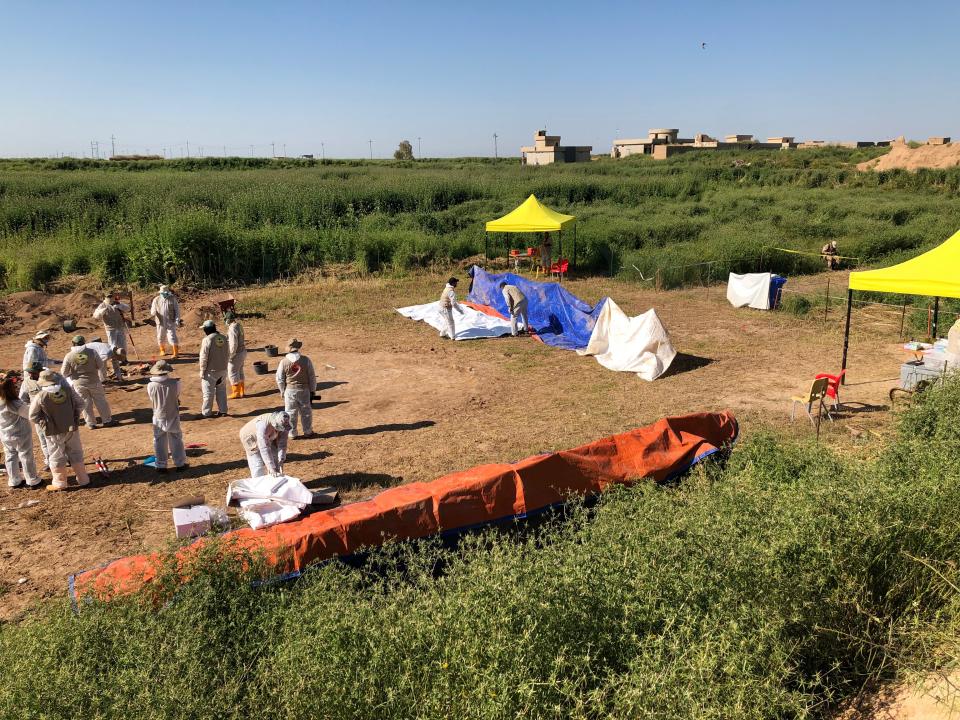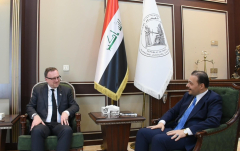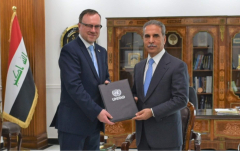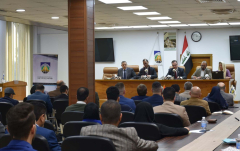Investigative Strategy

From the outset, UNITAD has worked to develop a detailed implementation strategy, in line with its guiding principles and in consultation with the Government of Iraq and other key national stakeholders. This strategy sets out the criteria for determining its investigative priorities and identifies specific areas of investigation that build upon existing work already done by Iraqi authorities.
The strategy further incorporates the consideration of key factors, such as the scope and scale of alleged crimes, including sexual and gender-based crimes and crimes against children and the identification of those who bear the greatest responsibility. The Sexual and Gender-Based Violence crimes and Crimes against Children Unit (SGBVCU) of the Office of Filed Investigations has the primary responsibility of ensuring that UNITAD effectively investigates sexual and gender-based crimes and crimes against children committed by ISIL in Iraq.
The Investigative Team's strategy is reviewed on a regular basis and as events and contingencies require. All detailed issues of coordination and support are managed by the Director of Investigations and further supported by the Office of the Special Adviser when necessary.

Substantive Investigative Priorities
On the basis of its investigative strategy, and drawing on the initial collection and analysis of documentary and digital evidentiary material, the Investigative Team adopted an implementation plan in which the following three areas for investigation were set out:
- Attacks committed by ISIL against the Yazidi community in the Sinjar district in August 2014;
- Crimes committed by ISIL in Mosul between 2014 and 2016, including the execution of religious minorities, crimes involving sexual and gender-based violence and crimes against children; and
- The mass killing of unarmed Iraqi air force cadets from Tikrit Air Academy in June 2014.
In line with an approach that reflects the imperative of ensuring equitable treatment of the diverse communities represented in Iraq, UNITAD subsequently expanded these priorities to include a broad range of additional crimes, including those committed against Kaka’i, Shabak, Sunni, Christians and Turkmen communities. Furthermore, the SGBVCU takes the investigative lead in three thematic areas: Child recruitment; The ISIL practice of sexual slavery; and Crimes against the LGBTQ community.
This approach to operational effectiveness draws on the full range of expertise already available on the Team and is intended to ensure a comprehensive strategy that remains agile and responsive in order to adapt to opportunities and challenges that may arise.
Core Activities
With a view to implementing this strategy, UNITAD functions across five core operational activities that it is carrying out in consultation and cooperation with the Government of Iraq. Specifically, the team is:
- Collecting a broad range of existing documentary and testimonial evidence obtained from actors, including Iraqi national authorities, other national Governments, victims and witness groups, civil society bodies and international and regional organizations;
- Compiling and analyzing this evidentiary material to identify gaps that need to be filled;
- Conducting targeted field-based investigations to obtain physical, forensic and testimonial evidence that will serve to fill the gaps identified and support case development, through direct engagement with victims and witnesses;
- Preserving and storing all evidentiary material it collected in accordance with international standards; Producing comprehensive analytical case files capable of supporting domestic proceedings, both in Iraq and other Member States.
In the fulfilment of the activities outlined above, field-based investigations and related tasks are conducted by the Team in highly complex operating environments.





